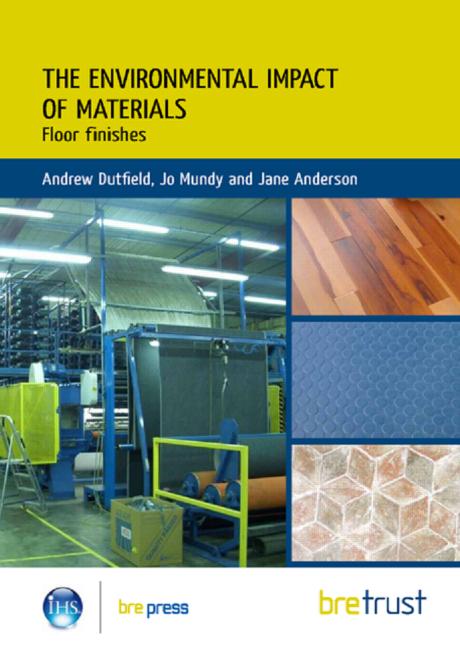Polyurea Coatings Provide Protection in Industrial Applications

Polyurea coatings, known for their exceptional durability, chemical resistance, and fast curing properties, have witnessed significant growth in various industrial applications. Photo: Persistence Market Research.
In the realm of protective coatings, one material has been making significant waves for its exceptional durability and versatility: polyurea coatings. Developed in the late 20th century, polyurea coatings have rapidly gained popularity across various industries due to their remarkable properties and wide range of applications. From industrial settings to consumer products, polyurea coatings offer unmatched protection against corrosion, abrasion, chemicals and harsh environmental conditions. This article explores the unique features of polyurea coatings and their extensive use in enhancing durability and performance across diverse industries.
Polyurea coatings belong to the family of polyurethane plastics and are formed through the reaction of isocyanates with an amine or hydroxyl compound. Unlike traditional coatings such as epoxy or polyurethane, polyurea coatings cure rapidly when applied, forming a seamless, elastic membrane with exceptional strength and durability. This rapid curing process, often within seconds or minutes, allows for quick turnaround times, making polyurea coatings ideal for projects requiring fast completion.
Market Overview
Polyurea coatings, known for their exceptional durability, chemical resistance, and fast curing properties, have witnessed significant growth in various industrial applications. The global polyurea coatings market is projected to exhibit robust growth, driven by increasing demand from construction, automotive, industrial, and infrastructure sectors. According to Persistence Market Research's projections, the market is expected to escalate from a value of US$2.8 billion in 2023 to approximately $4.9 billion by 2030, with a compound annual growth rate (CAGR) of 7.5%.
Key Features and Benefits
Superior Durability: Polyurea coatings exhibit outstanding durability, with exceptional resistance to abrasion, impact, and chemical exposure. This durability makes them suitable for protecting surfaces subjected to heavy wear and tear, such as industrial floors, pipelines, and marine structures.
Flexibility: One of the most distinctive characteristics of polyurea coatings is their flexibility. They can stretch and return to their original shape without cracking or losing adhesion, even under extreme temperature fluctuations. This flexibility ensures long-term performance and prevents delamination or failure of the coating system.
Waterproofing Properties: Polyurea coatings provide excellent waterproofing capabilities, forming a seamless barrier that effectively seals surfaces against moisture ingress. This makes them invaluable for applications in waterproofing roofs, concrete structures, and containment systems, where protection against water damage is critical.
Fast Cure Times: The rapid curing nature of polyurea coatings enables quick turnaround times for projects, minimizing downtime and disruption to operations. This feature is particularly advantageous in industries where downtime translates to significant financial losses, such as manufacturing, transportation, and infrastructure.
Versatility: Polyurea coatings are highly versatile and can be customized to meet specific performance requirements. They can be formulated to achieve various physical properties, including hardness, flexibility and chemical resistance, making them suitable for a wide range of applications across different industries.
Applications Across Industries
Industrial Flooring: Polyurea coatings are widely used for industrial flooring applications due to their unmatched durability and chemical resistance. They provide a seamless, easy-to-clean surface that withstands heavy traffic, impact and exposure to chemicals, making them ideal for manufacturing plants, warehouses, and automotive facilities.
Infrastructure Protection: In the construction and infrastructure sector, polyurea coatings are utilized to protect concrete and steel structures from corrosion, moisture and chemical attack. They are commonly applied to bridges, highways, tunnels, and wastewater treatment facilities to extend the service life of critical infrastructure assets.
Pipeline Coatings: Oil and gas pipelines are susceptible to corrosion and abrasion, posing significant maintenance challenges and safety risks. Polyurea coatings offer a reliable solution for protecting pipelines against corrosion, erosion, and external damage, enhancing their longevity and minimizing maintenance requirements.
Marine Applications: The harsh marine environment exposes ships, offshore platforms, and marine structures to corrosion, fouling, and abrasion. Polyurea coatings provide an effective barrier against saltwater, chemicals, and UV radiation, prolonging the service life of marine assets and reducing maintenance costs.
Automotive Protection: In the automotive industry, polyurea coatings are utilized for corrosion protection, sound insulation, and bed lining in trucks and utility vehicles. Their ability to withstand impact, abrasion, and harsh weather conditions makes them an ideal choice for protecting vehicle surfaces and underbody components.
Polyurea coatings have emerged as a leading solution for enhancing durability and performance across a wide range of industries. With their exceptional properties, including superior durability, flexibility, and fast cure times, polyurea coatings offer unparalleled protection against corrosion, abrasion, and environmental factors. From industrial flooring to marine applications, polyurea coatings continue to revolutionize the protective coatings industry, providing cost-effective solutions for extending the service life of critical assets and infrastructure. As technology advances and new formulations are developed, the versatility and applicability of polyurea coatings are expected to further expand, driving innovation and growth in various sectors worldwide.
Looking for a reprint of this article?
From high-res PDFs to custom plaques, order your copy today!








